A figurehead of a sport that established him as one of the best of history. One of the greatest exponents of Portugal in the world. Product of incessant work, effort and dedication. Or simply Cristiano Ronaldo.
Few are the words that do justice to the achievements of a unique career, built under parameters of excellence and on humble foundations.
From Funchal to the world
On February 5, 1985, Cristiano Ronaldo dos Santos Aveiro was born in Funchal, in the middle of the Madeiran winter. It is the name of an ace in the football universe – Brazilians Ronaldo “Fenómeno” and Ronaldinho Gaúcho are an example of this – but, in Cristiano’s case, the choice has links to North American politics. All because his father, José Dinis Aveiro, was a self-confessed admirer of then US President Ronald Reagan, and both José and Dolores “liked the name and said it had a strong sound”, revealed CR7 himself in an interview in 2016.
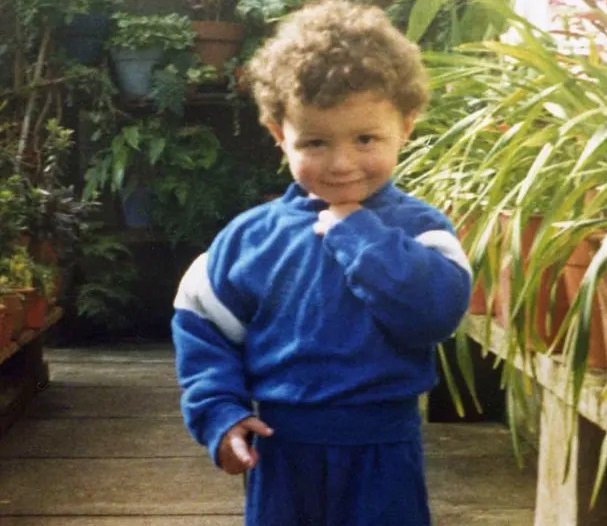
The first steps in the world of football were taken at Andorinha, a modest club in the parish of Santo António, which Cristiano played for between the ages of 7 and 9 and in which his father played the role of wardrobe.
He soon aroused greed among the larger clubs in the archipelago and from Santo António he flew to Sítio da Choupana, where, in 1995, he joined the youth ranks of Nacional.
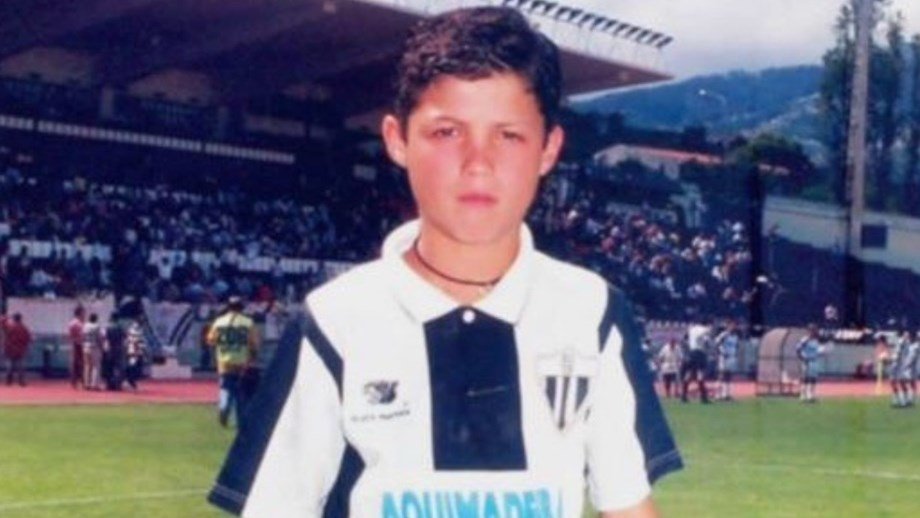
Two years later, a debt of 5 million escudos (25 thousand euros) that prevented Nacional from registering players led the Madeiran club and Sporting to an agreement: “The president of Sporting’s nucleus in Madeira, who was also a member of Nacional, told me that they had a superb kid and asked if there could be a meeting of accounts”, said Aurélio Pereira, a strong man in Sporting’s formation, in an interview in 2016. “I went to see and confirmed everything they had said: a fantastic resourcefulness, execution speed, aerial game…“ he revealed.
At just 12 years old, a talent that no longer fit in the more than 700 square kilometres of the island continued his journey towards the mainland capital. From the pearl of the Atlantic came a diamond in the rough that would turn out to be the jewel in the crown in the kingdom of the “lion”.
Growing pains
The early days at Sporting were difficult for little Cristiano. Alone in Lisbon and with his family almost a thousand kilometres away, he went through a troubled period of adjustment, of natural emotional instability for a 12-year-old who finds himself, prematurely, so far from those he loves most. Even so, it was a short-lived sun, as the mental strength of a rising star was also manifested early.
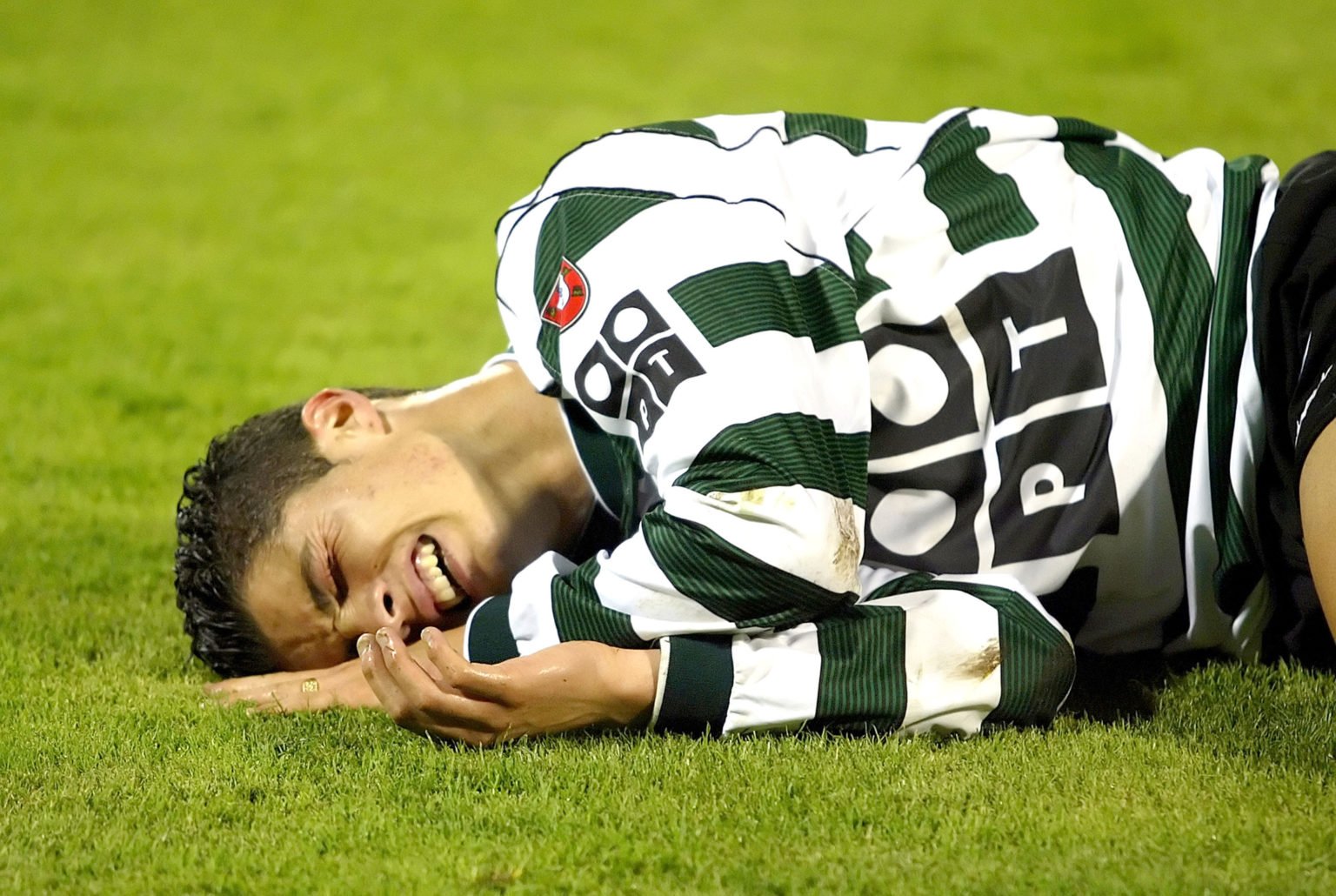
He skipped steps in the youth ranks, and it wasn’t long before he caught the attention of Romanian coach László Bölöni, who launched him in five pre-season games for Sporting’s first team in the summer of 2001. He was only 16 years old and ended up serving that season at the service of juniors, despite still being a youth.
The following season, the jump was inevitable and the official debut with a lion on his chest took place on August 14, 2002. He came on in the 58th minute, in the 0-0 draw between Sporting and Inter Milan, in the first leg of the 3rd qualifying round. of the Champions League. The first goals came less than two months later: a double by Cristiano against the former José de Alvalade, in the 3-0 victory over Moreirense, for the championship.
Ronaldo ended his debut season with five goals in 31 games. It would be the last in Sporting since, on August 6, 2003, at the inauguration of the Estádio José de Alvalade Século XXI, he shone in the leonine victory against Manchester United (3-1) and convinced Sir Alex Ferguson not to let the young prodigy escape.
CR7: the beginning of an era
A week later, at just 18 years old, Cristiano Ronaldo was presented as a Manchester United reinforcement, in a deal valued at 19 million euros – a considerably high value for the reality of the transfer market in 2003.


He soon imposed himself at Old Trafford, without feeling the weight of the mythical number 7 of the “red devils”, which once belonged to club legends such as George Best or Brian Robson. A new era began in the “Dream Theatre”.
The first season brought the first trophy: United won the FA Cup after beating Millwall 3-0 in the final. A triumph witnessed by more than 70 thousand spectators, with the scoring opened by Cristiano in the final moments of the first half.


Technical evolution and physical transformation allowed him to become one of Manchester United’s most influential players. On and off the field. It was therefore unsurprising that his first Premier League achievement came in 2006/07, when he scored 23 goals and was named the league’s best player.
If 2006/07 had a special flavour for Cristiano, what about the following season? He scored 42 goals in 49 games and added to the record another English League – in which he accumulated distinctions as top scorer and best player -, an FA Super Cup and, more importantly, the first Champions League of his career. In the final in Moscow, he scored United’s only goal and the missed penalty in the tie-breaker against Chelsea turned out to be a lesser evil.
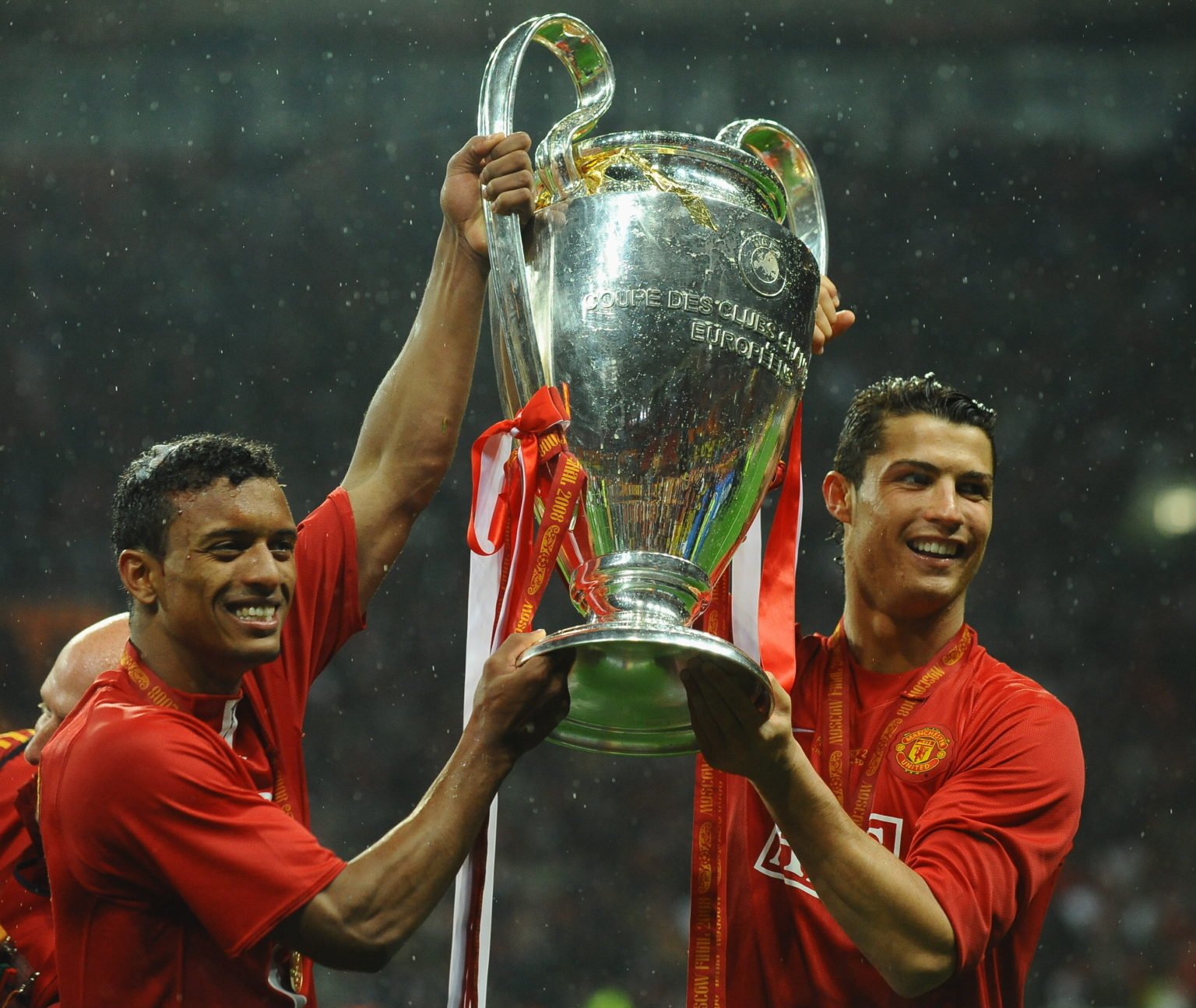
A dream time in which collective achievements led to well-deserved individual recognition. The status of top scorer in the European championships earned him the first Golden Boot of his career, to which he added the Golden Ball, a prize awarded annually by the renowned magazine France Football to the best footballer in the world.
The “marvellous kid” wore the Superman cape and, from a young promise of Portuguese football, became an icon of world sport.
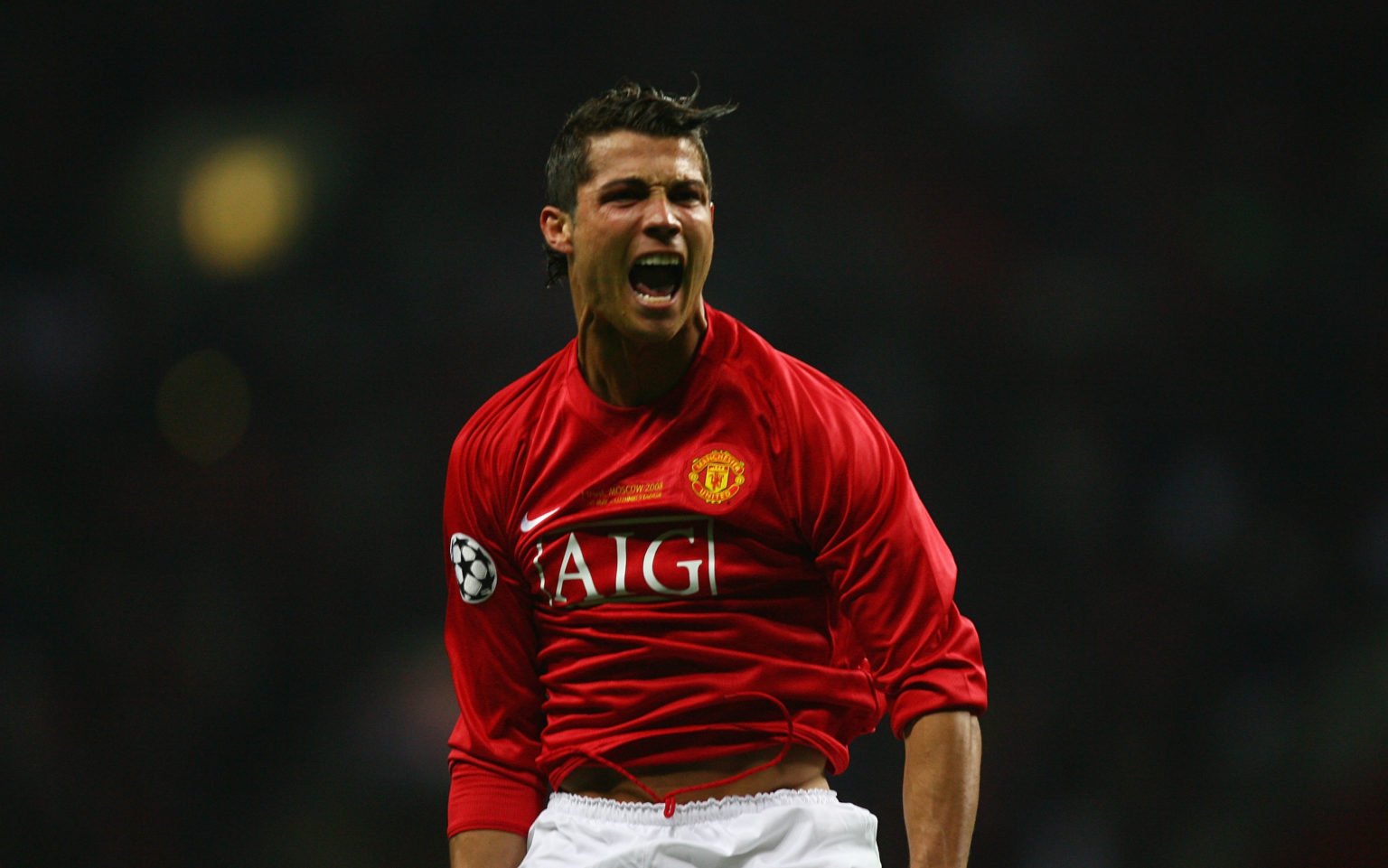
The Affirmation of the Legend
Unsurprisingly, in 2009, a proposal emerged that would revolutionize CR7’s career. At the age of 24, he moved from Manchester to Madrid, with Real paying 94 million euros, starring in the most expensive transfer and contract in world football so far.
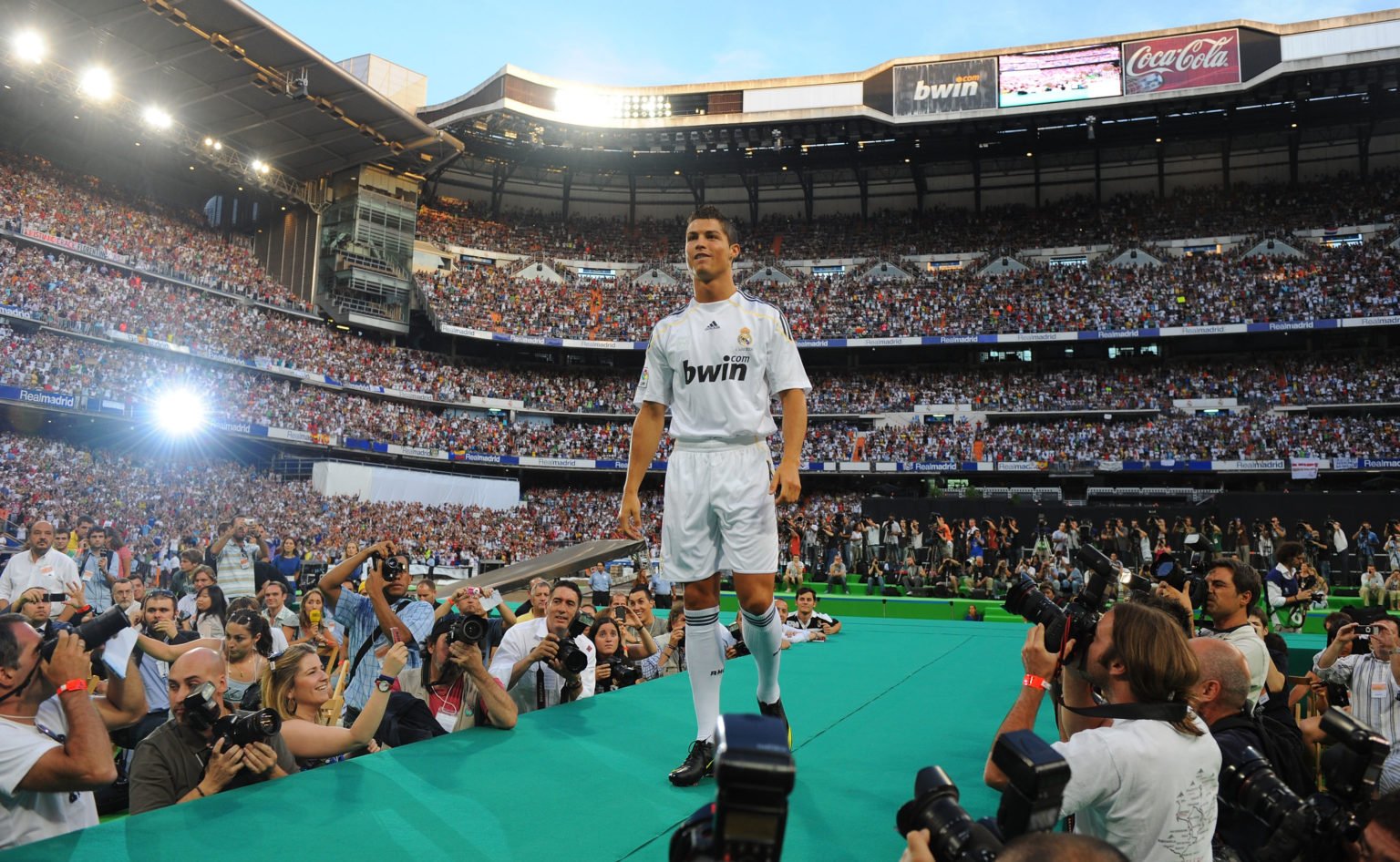
The man who popularizes records broke another one the day he set foot on the pitch for the first time at the Santiago Bernabéu, as a Real Madrid player: never had so many fans watched a footballer perform live. For the eternal memory of madridistas there was an effusive “Hala Madrid”.
As in Manchester, he soon established himself in Madrid as the central figure of a club marked by an internal success shared with rivals Barcelona, but in a climate of almost despair in the search for the long-awaited 10th Champions League, which had eluded him since 2002.
The CR7 factor was crucial in the collective evolution of a Real Madrid that rediscovered the glory of other times. After winning the championship, Copa del Rey and Spanish Super Cup, “La Décima” arrived in 2014, under the baton of a Cristiano Ronaldo from another planet: with more than 50 goals per season between 2010 and 2016, he claimed the status of legend and raised Real to the highest level in world football.





Golden years in Madrid, where, in addition to becoming Real’s all-time top scorer, with 450 goals in 438 games, he won four Champions Leagues, three Club World Cups, two European Super Cups, two championships, two Copa del Reyes and two Super Cups. From Spain.
A triumphal era for the club and the national team (where he is a record holder for goals and caps), with the unprecedented achievements of Euro 2016 and the debut League of Nations, whose final phase took place in Portugal in 2019.



At the individual level, the awards and distinctions followed one another at an overwhelming pace, with the heyday in 2017, the year in which he received the fifth Ballon d’Or in his career.
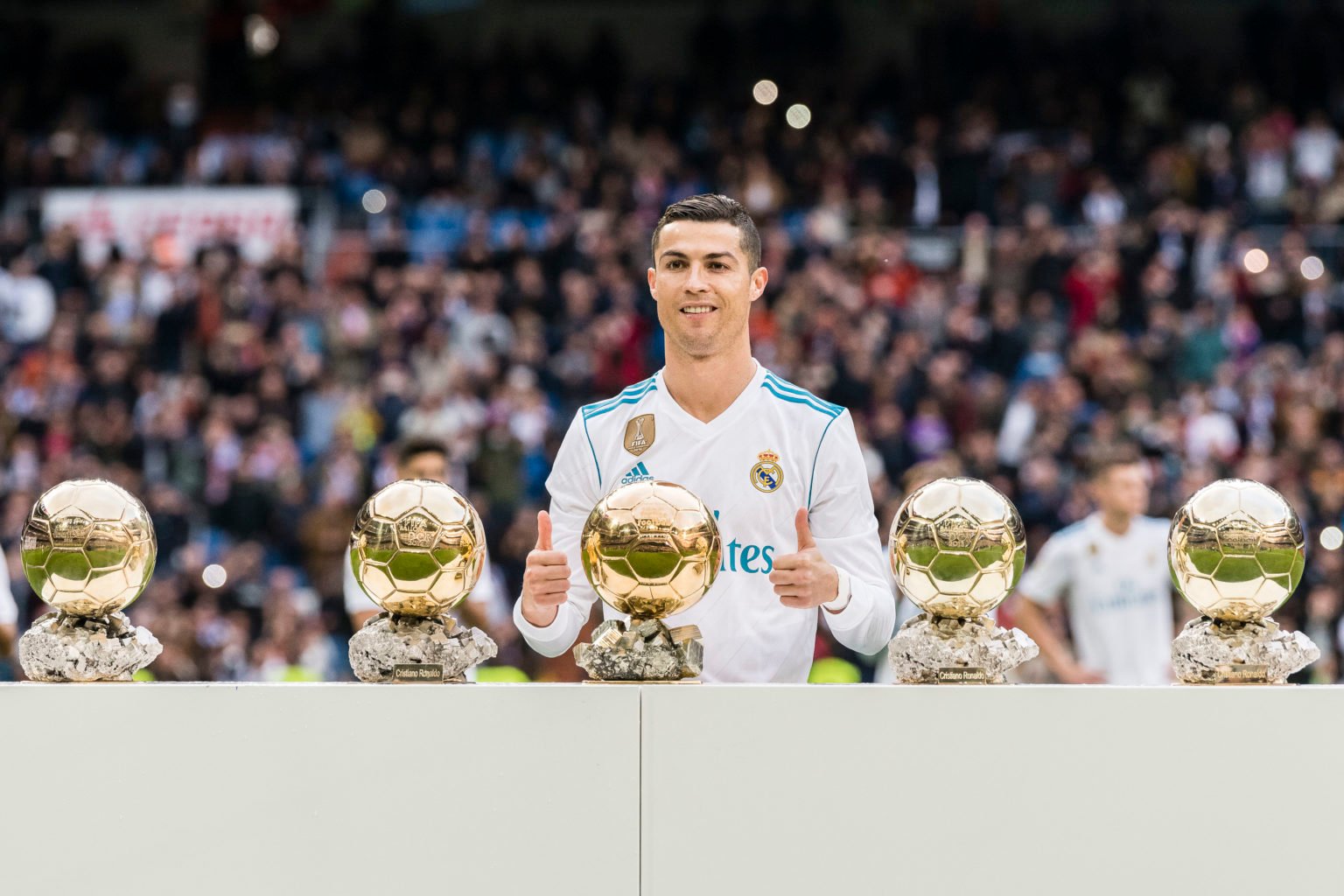
A dream marriage that made the separation that took place in 2018 even more unpredictable, after nine unparalleled seasons in the history of Real Madrid and Ronaldo.
A fearless veteran
A new challenge called for CR7, again in a top 5 European championships: the Italian Serie A. And then through the most imposing entryway: that of the seven-time champions Juventus, who were looking, in the image of Real, for a re-encounter with the European glory of the past.
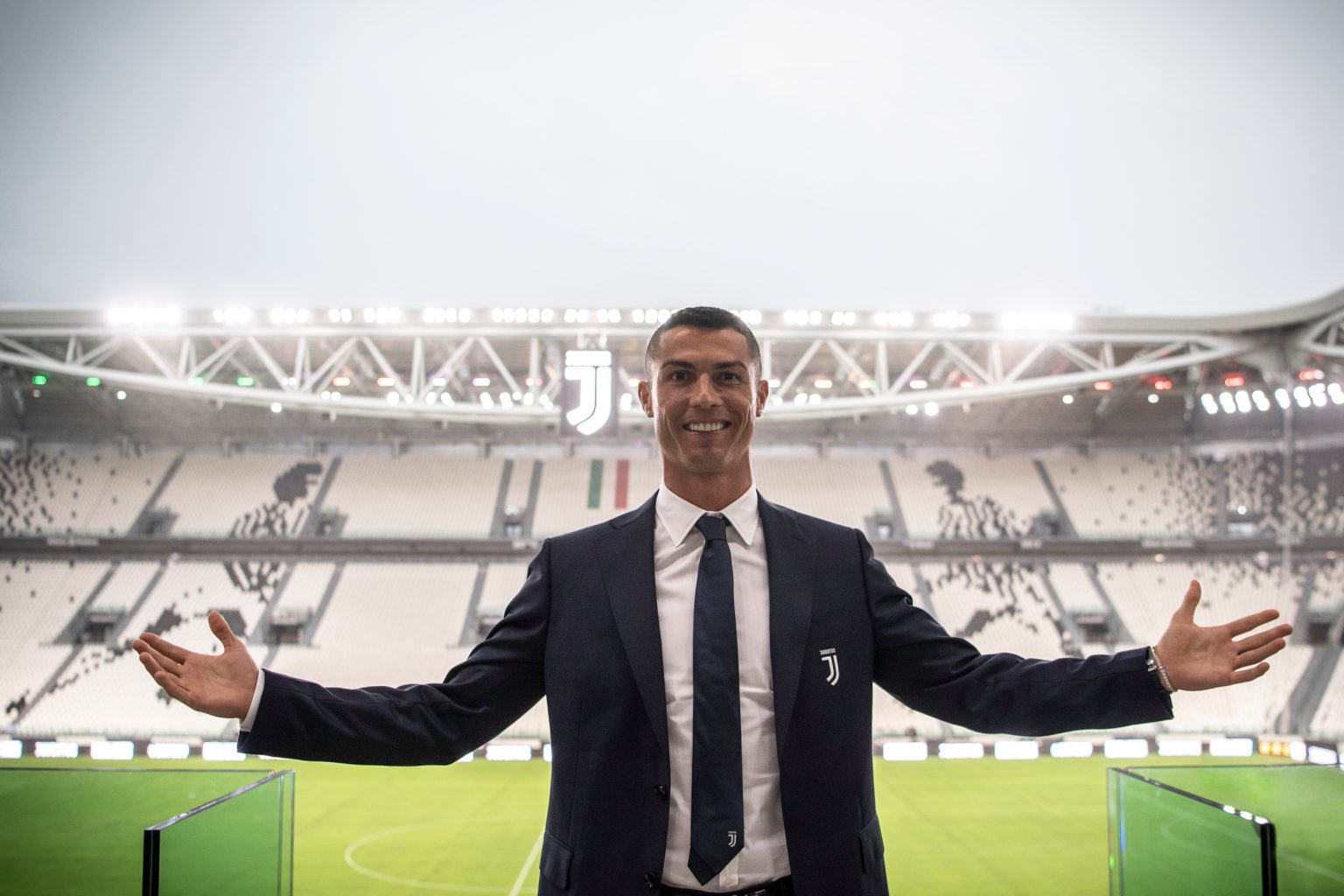
At 33, Cristiano embraced what was probably the most demanding challenge of his career. Three seasons in Turin without the coveted European affirmation, which not even the ones made on Italian soil were able to stifle.
Even with Juventus on a downward spiral, CR7 once again surpassed himself, becoming the player with the most goals in football history, the player with the most goals in a single season for Juve (37) and the first to score 100 or more goals in three of the main European championships (England, Spain and Italy).


“The good Son returns home”
The exit was, this time, an inevitable scenario, materialized in August of this year. Like a fairy tale, Ronaldo returned to the home that saw him emerge and assert himself on the international stage: Manchester United. A return described by himself as “a dream come true”.
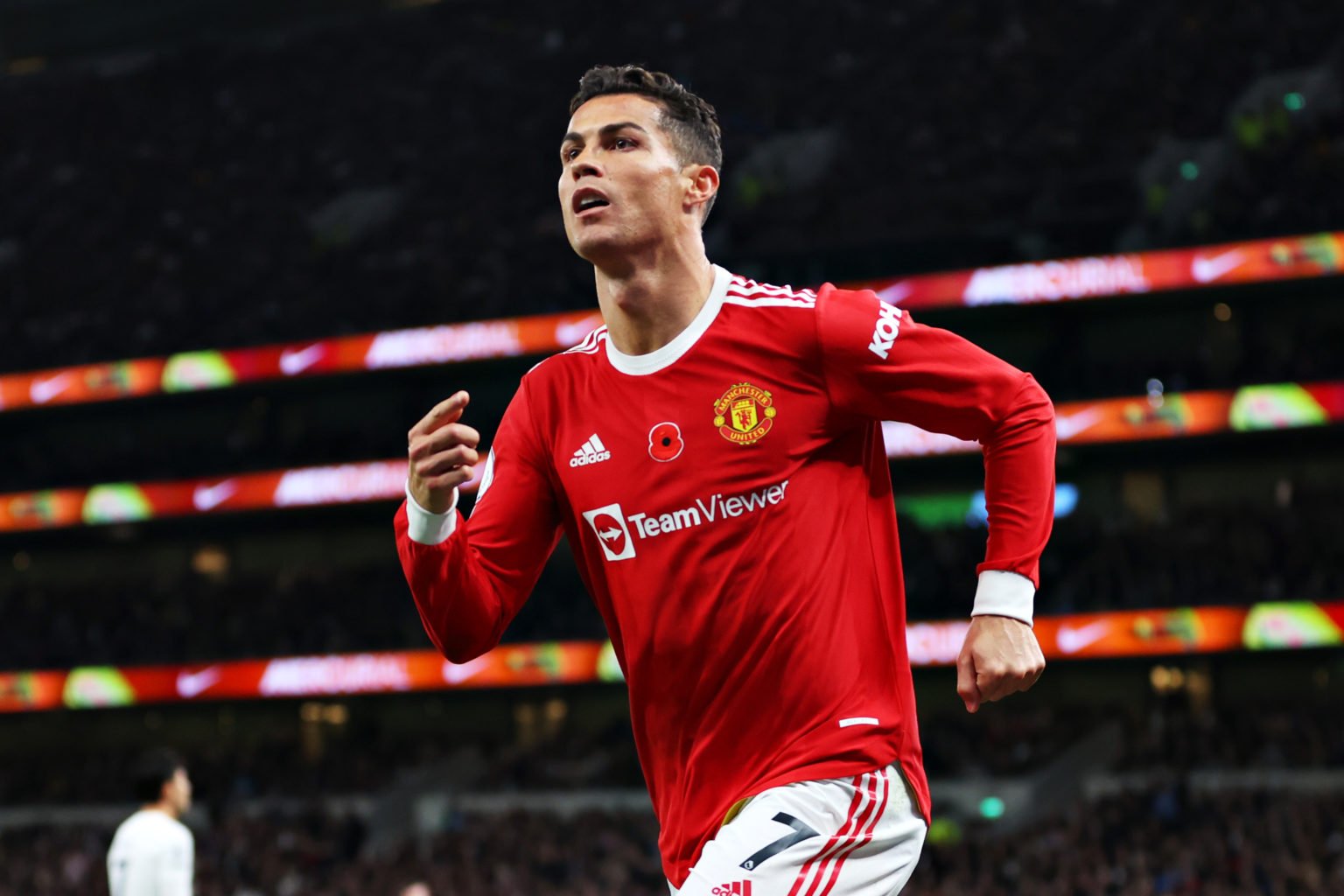
At 36, he proved once again that age is just a number and quickly satisfied the expectations of the thousands of fans who, 19 years earlier, saw an impish and irreverent young man step on the Old Trafford lawn, which the years have turned into a universal reference.
With an unmeasured ambition and an incomparable winning spirit, Cristiano Ronaldo continues to prove – to himself and to others – that, at 37 years old, it is by his own merit that the world sees him as a legend of sport.
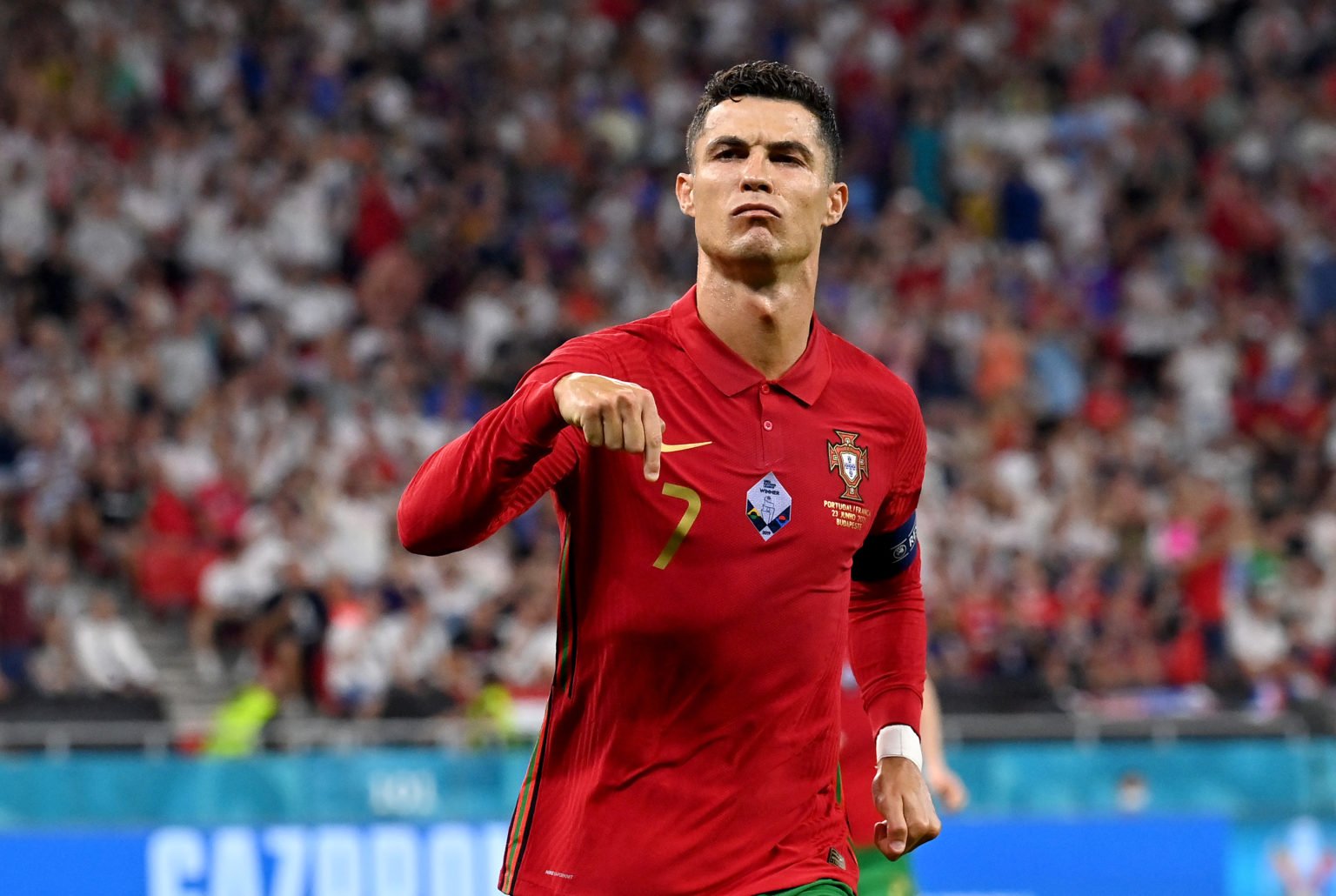
Comment (0)